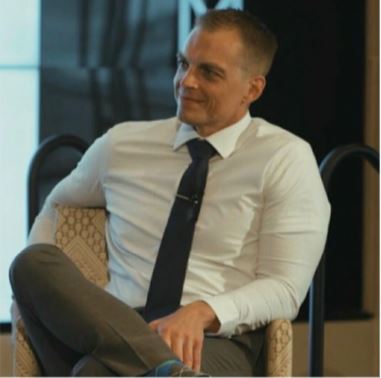When I applied for my first ministry job after completing my doctoral coursework, I felt a strong call to serve rural pastors. There was a Director of Missions opening with a Southern Baptist association in my hometown. It was part-time, but it came with a parsonage, and Kim and I really felt strongly that we were moving in the right direction. There was only one problem…I wasn’t a Southern Baptist.
The search committee didn’t mind. We were well aligned doctrinally, and I committed to joining a Southern Baptist church in the association if my “calling was confirmed.” After meeting several of the association’s pastors and members, there were no signs of trouble…that I could see.
The search process culminated at an association meeting. The meeting was going well until one of the pastors stood up and said he would not vote for someone unwilling to “bleed for the Southern Baptist faith.” He was referencing the fact that I had chosen not to pursue membership with a Southern Baptist church during the search process. After a chorus of “Amen,” from several others in the room, the meeting went downhill, and I was told that I would not be asked to take the position.
Having reflected on this incident, I’ve learned a great deal about how I handled myself (another post, another time) and about our potential to limit God. In this case, it seemed that many of the people in the room simply didn’t believe God would lead them to hire someone to a position in the Southern Baptist denomination who was not a Southern Baptist.
In principle, I get it. We build organizations with particular cultures and norms that we want to protect. There isn’t anything necessarily wrong with that…until there is. What happens when our culture, values, traditions, etc., keep us from seeing what God is doing? When does our vision of what God can do become so narrow that we miss what God is really doing? At what point does our unwillingness to work outside our organizational boundaries hinder our ability to follow God, testify to His goodness, and demonstrate the power of the body of Christ?
I’m not sure I have a simple answer to those questions or guidelines that would offer a no-fail framework for decision makers. I do know that…
God does not live in our world…we live in His.
God does not live within limits we have determined…we live with God bounded by His Spirit, His word, and the company of the saints past, present, and future
God is not constrained by our competence and capacities…we are challenged to live with his endless capacity in mind.
In the end, we do not serve a god (small “g” intended) confined by our organizations who can only adhere to our social conventions. That god is false, constructed, and limited. That god is an agent of our organizations…a middle manager answerable to and dependent on top leadership for guidance and direction. I don’t care to serve that god. I will serve the Sovereign God who desires to transform and redeem them (and us!).
Perhaps we don’t need to identify the exact point at which our organizational boundaries keep us from following God. Perhaps we simply need to begin with the understanding that God is not just another member of our group. He stands above it unconstrained by its rules or conventions. He seeks our sacrificial participation in His plan of redemption. Keeping this God in mind will surely give us greater insight as we dive deeply into the Scriptures, participate in prayer, discussion, and worship, and seek to glorify God in all we say and do.
This is an updated edition of a post originally published on CRAZY DIFFERENT.
Featured Image by Hands off my tags! Michael Gaida from Pixabay
USEFUL TO GOD
Eight Lessons from the Life of D. L. Moody
FULL COLOR WITH BEAUTIFUL ILLUSTRATIONS
SEE MORE GREAT BOOKS FROM KINGDOM WINDS PUBLISHING





















[…] Open the full article on the kingdomwinds.com site […]